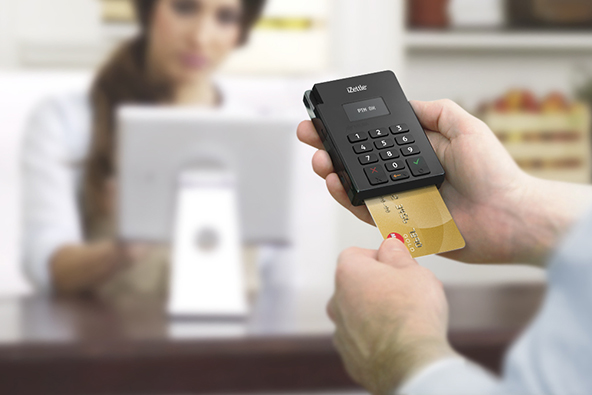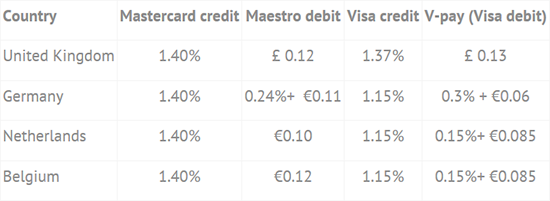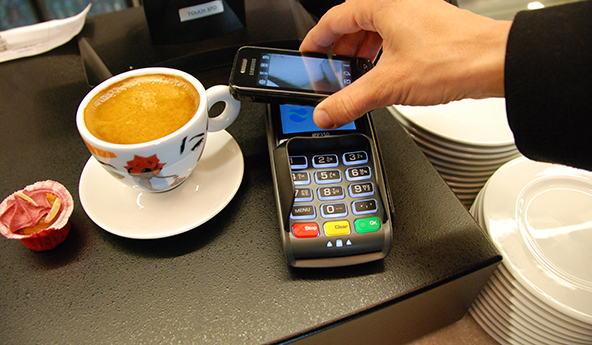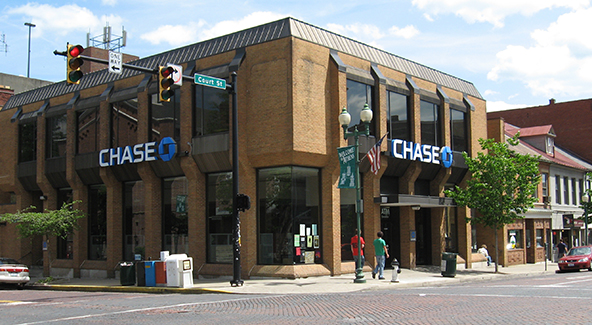Do Big Businesses Make for Good Target Markets for Square and Its Clones?

Going through my news feed this morning, I stumbled upon an interview that Wired’s Dan Smith had taken with Jacob de Geer, the CEO of iZettle — a Swedish mobile payments start-up. I actually passed it over several times, before finally taking a look at it — there simply wasn’t anything interesting this morning and this type of things are usually incredibly boring, full of obsequious flattery or worse. Well, I’m glad I did finally open the link for, whereas boredom was indeed pervasive (start with the title — iZettle wants to ‘fundamentally change the process of becoming a customer’), it did manage to produce something interesting, albeit at its very end.
The nugget in question relates to an issue I have been thinking about for quite some time — whether or not Square and its clones are well suited to serve big businesses. De Geer thinks not — at least as far as his own company is concerned — and I disagree with him. In fact, I’m quite surprised with de Geer’s lack of vision. As he says, in August of last year Square signed a deal with Starbucks, to much fanfare, which, among other things, was supposed to lead to Square eventually processing all of the coffee chain’s transactions. Almost a year has gone by since then and the promised switch is yet to materialize, prompting some of us to wonder what is going on. But let’s assume that the transition never takes place. Does that mean that the Squares of the world are fundamentally incapable of serving big retail chains? Well, I see absolutely no reason why Jack Dorsey’s outfit or any of its clones would not be able to do the job and expect that someday they will.
Eyeing Bigger Businesses
So Smith asks De Geer whether or not he had “an eye on bigger businesses”, to which iZettle’s CEO gives the following reply:
Bigger in a sense that they could be small-to-medium-sized, yes. But we’ll never go as high up — and I mean “never” as I view this today — I don’t believe that we’ll go after Starbucks like Square did. We’re not relevant for those customers. Coming back to the banks, they have a really good structure in place for those businesses. It’s extremely scalable, it’s highly reliable. Everything is in place. They’re great solutions for bigger companies but for the smaller merchants, I think not. A good example might be that an auto dealer doesn’t try to sell a Ferrari to everyone. That’s essentially that’s what banks have been doing for a while and most small cafes aren’t looking for Ferraris, from a business perspective. They just want something that takes them from A to B and that’s where we come in.
OK, what is wrong with this statement? Well, rather a lot, I’m afraid, and it’s truly remarkable that a CEO of a payment processor, even a newish and smallish one, would make it. The biggest thing that sticks out to me is de Geer’s lack of confidence in his own service. His company, he tells us, is “not relevant” for the bigger merchants, because the banks’ competing offerings are “extremely scalable” and “highly reliable”. So the implication clearly is that iZettle’s service is neither scalable nor sufficiently reliable. But the thing is that if iZettle cannot offer a highly reliable payment processing, they have no business doing it in the first place, irrespective of the size of their clients. After all, there are no separate industry standards regulating service quality by processor size, nor can smaller merchants be expected to tolerate poor service with any more patience than larger ones. Moreover, as de Geer himself acknowledges, Square shows that this type of service is “scalable”. So why is de Geer so diffident? Well, rather than analyze his motives, I would offer my take on why a larger merchant would be hesitant to sign up with a processor of iZettle’s type, i.e. a Square clone.
Does Size Make a Difference?
As it happens, there is a Square-like European service provider, which conveniently specializes exclusively in servicing large merchants and its name is Adyen. The company’s mobile payments offering, called Shuttle, “has seen phenomenal demand… from businesses of all sizes — small specialist stores right up to multinational brands”, the Dutch processor assures us. Now, one could — and should — be skeptical about companies’ press releases, but Adyen does have a compelling offering. In fact, when I reviewed the Shuttle in December of last year, I pronounced it to be “the best direct mobile credit card acceptance solution currently available”. On the outside, Shuttle looks very much like your average European Square clone, including iZettle — it comes with a chip-and-PIN card reader that links to the user’s mobile phone through Bluetooth. However, unlike its look-alikes, Shuttle can integrate a merchant’s face-to-face payments with its e-commerce store. Moreover, Adyen offers “one solution for all countries”, so that merchants with operations in multiple countries can manage everything from one place.
Then there is the issue of pricing. Most other Square clones use the original’s pricing structure, consisting of one rate for swiped transactions and a higher one for key-entered payments. As I’ve explained many, many, many times before, this is not a pricing model that could possibly appeal to a large merchant. The Adyen guys know that and are using an interchange-plus pricing structure instead where the processor’s own fee (0.60 percent for credit cards and EUR / GBP 0.06 for debit cards) is added to whatever interchange fee the card issuer charges. The company gave us the following examples for the average total costs of acceptance of four different types of consumer cards:

Compare that to iZettle’s pricing.
All these components — great pricing, international support and multi-channel integration — make for a solid offering that could appeal to larger merchants. Furthermore, I can assure you that Adyen would give a Starbucks-size merchant much better rates than the ones advertised on the processor’s website, which is precisely what Square did with the coffee chain, as Jack Dorsey told Reuters:
Obviously as you scale up, you do see reductions in cost and Starbucks is a very significant scale compared to a lot of other merchants in the world.
In our industry at least, size does matter.
The Takeaway
So whether or not de Geer sees his start-up as “not relevant” for larger merchants, the fact is that there are Square-like companies that can do the job every bit as well as — or better than — “the banks”, as iZettle’s CEO calls the larger processors. But de Geer might want to reconsider his view, for relying on the smallest of merchants would severely restrict his company’s growth prospects. And by the time he realizes what is happening, Square, Adyen or whoever else would have figured out how to work with the bigger merchants might well push iZettle out of business.
Image credit: iZettle.


